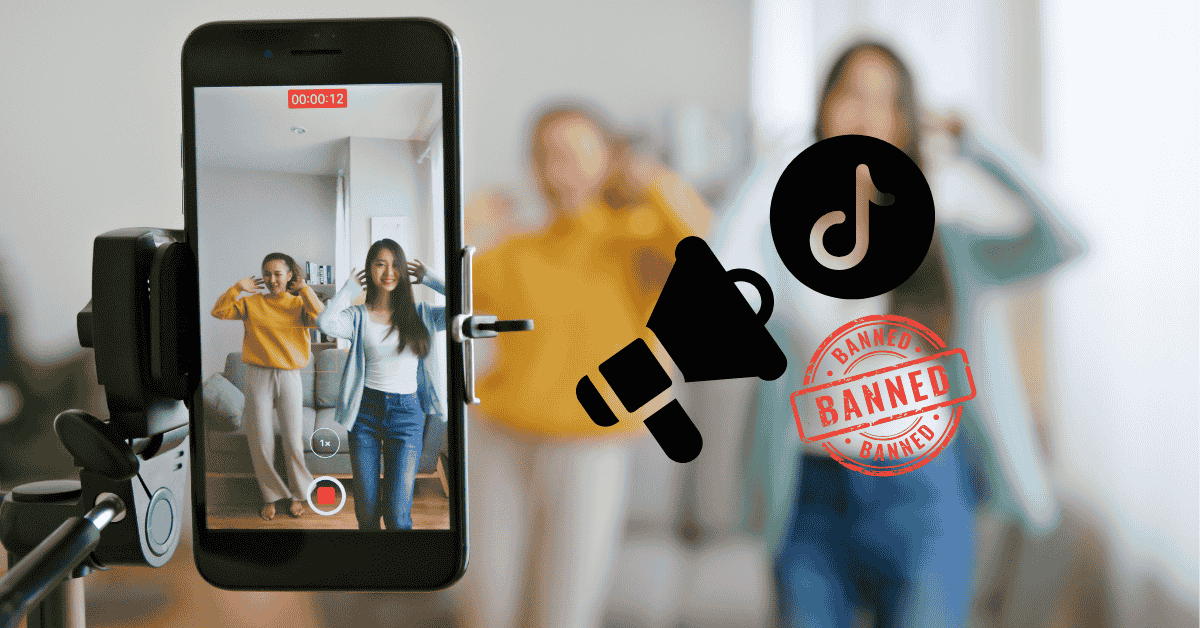TikTok, a short-video social media platform owned by China’s ByteDance, has revolutionized how we consume and create content. With its easy-to-use interface, engaging filters, and endless stream of videos, TikTok quickly became a global phenomenon. Users from all walks of life, including celebrities, influencers, and everyday people, embraced the platform. But while TikTok has brought joy to millions, it has also faced significant scrutiny and legal challenges around the world.
TikTok User Demographics
| Age Group | Percentage of Users |
|---|---|
| 18-24 | 36.7% |
| 25-34 | 27.9% |
| 35-44 | 16.5% |
| 45-54 | 10.2% |
| 55+ | 8.7% |
TikTok Usage Statistics
| Metric | Data |
|---|---|
| Total Downloads (Feb 2024) | 4.7 billion |
| Daily Active Users (iOS) | 30.8 million |
| Average Time Spent (Children) | 75 minutes/day |
| U.S. Users | 102.3 million |
| Female Users | 52% |
| Male Users | 48% |
TikTok’s Popularity: A Cultural Shift
TikTok’s rise to fame was nothing short of meteoric. Launched in 2016, it took just a few years to become one of the most downloaded apps globally. Its popularity soared during the COVID-19 pandemic, as people looked for new ways to connect and entertain themselves while staying indoors. The platform’s ability to turn everyday users into viral sensations is unparalleled. For instance, the “Renegade” dance, created by a teenage user, became a global trend, performed by millions including celebrities like Charli D’Amelio and Addison Rae. TikTok’s algorithm, which tailors content to individual preferences, played a significant role in its success. It keeps users hooked by constantly showing them videos they are likely to enjoy.
The U.S. Ban on TikTok: A National Security Concern
In the United States, TikTok’s rapid growth raised eyebrows, especially concerning data privacy and national security. Lawmakers feared that TikTok’s Chinese ownership could allow the Chinese government to access American user data. This concern led to a significant legislative move in March 2024, when the U.S. government passed the Protecting Americans from Foreign Adversary Controlled Applications Act. The law mandates that ByteDance must sell its U.S. operations by January 19, 2025, or face a nationwide ban.
The Legal Battle and Its Implications
As of now, TikTok is preparing to shut down its U.S. operations unless the Supreme Court overturns the ban. This potential shutdown has sparked a heated debate about the balance between national security and the freedom of expression. On one side, proponents argue that the ban is necessary to protect sensitive data from foreign adversaries. On the other side, opponents believe that such a move stifles creativity and free speech, affecting millions of users who rely on the platform for entertainment, education, and even livelihood.
Global Response: Bans in Other Countries
TikTok’s troubles aren’t confined to the United States. Several other countries have also taken steps to restrict or ban the app, citing various reasons ranging from national security to cultural concerns.
India: The First Major Ban
India was one of the first countries to impose a ban on TikTok. In June 2020, the Indian government banned TikTok along with several other Chinese apps, citing national security concerns amid rising tensions with China. This move was a significant blow to TikTok, as India was one of its largest markets, with over 200 million users. The ban left many influencers and content creators in a lurch, forcing them to shift to other platforms.
Pakistan and Afghanistan: Cultural and Moral Concerns
In Pakistan and Afghanistan, the bans on TikTok have often been driven by cultural and moral concerns. Authorities in these countries have periodically blocked the app, citing content that they deemed immoral or indecent. For instance, in Pakistan, TikTok was banned in October 2020 but was later reinstated after the company assured the government it would moderate content better.
The Impact of Bans: A Ripple Effect
The bans on TikTok have far-reaching implications for both users and the tech industry. For users, especially influencers and content creators, the bans mean losing access to a platform that has become a significant part of their lives. Many creators have built their careers on TikTok, amassing large followings and earning substantial income through brand partnerships and sponsored content. The sudden loss of this platform can be devastating.
Economic and Social Impacts
The economic impact of these bans is also noteworthy. In India, for instance, the ban affected not just individual users but also businesses that relied on TikTok for marketing and outreach. Small businesses and startups, in particular, found TikTok to be a cost-effective way to reach potential customers. The ban forced these businesses to rethink their marketing strategies and find alternative platforms.
On a broader scale, the bans on TikTok reflect the growing tension between technological innovation and national security. As governments grapple with the implications of foreign-owned technology, the future of apps like TikTok remains uncertain. The situation also highlights the need for clear regulations and guidelines to address data privacy and security concerns without stifling innovation.
Alternatives to TikTok: The Rise of New Platforms
With TikTok facing bans in several countries, alternative platforms have emerged to fill the void. Apps like Triller, Dubsmash, and Byte have gained popularity as users look for new ways to create and share content. These platforms offer similar features to TikTok, including short-form videos, music integration, and user-friendly interfaces. However, replicating TikTok’s success is no easy feat. The app’s sophisticated algorithm, which personalizes the user experience, has been a significant factor in its popularity. While alternative platforms can offer similar features, matching TikTok’s level of engagement and user retention remains a challenge.
Conclusion: Navigating the Future
TikTok’s journey from a viral sensation to a controversial app facing bans in multiple countries underscores the complex interplay between technology, security, and culture. As governments and tech companies navigate these challenges, the future of TikTok and similar platforms remains uncertain. However, one thing is clear: the need for a balanced approach that prioritizes user safety and privacy while fostering innovation and creativity.
FAQs
What is TikTok?
TikTok is a social media app that allows users to create, watch, and share short videos set to music and sound effects. Launched in 2016 by the Chinese company ByteDance, it has quickly become one of the most popular apps globally due to its addictive nature and high engagement levels.
Why is TikTok so popular?
TikTok’s success can be attributed to its user-friendly interface, personalized content feed, and the ability to create engaging short videos easily. Its algorithm tailors content to individual preferences, keeping users hooked by showing them videos they are likely to enjoy. Additionally, the app’s integration of music and sound effects adds an extra layer of creativity and entertainment.
What are the concerns about TikTok’s Chinese ownership?
TikTok’s Chinese ownership has raised concerns about data privacy and national security. Critics fear that the Chinese government could use the app to collect data on users and spread propaganda. These concerns have led to calls for stricter regulations and even bans in several countries, including the United States.
What is the U.S. legislation regarding TikTok?
In April 2024, American lawmakers passed legislation requiring ByteDance to sell TikTok’s U.S. operations within a year. If the company fails to do so, TikTok will be banned in the U.S. by January 2025. This decision is based on national security concerns over data privacy and the potential influence of the Chinese government.
How has TikTok’s growth impacted the social media landscape?
TikTok’s rapid growth has significantly impacted the social media landscape. As of February 2024, it has been downloaded approximately 4.7 billion times. The app’s success has forced other social media platforms to innovate and introduce similar short-form video features, such as Instagram Reels and YouTube Shorts, to compete with TikTok’s popularity.
What are some notable marketing campaigns on TikTok?
Several brands have launched successful marketing campaigns on TikTok by creating engaging and quirky content. For example, Chipotle’s Halloween “Boorito” campaign encouraged users to dress up and post their images, resulting in 4 billion views. e.l.f. Cosmetics’ #eyeslipsface campaign garnered 10.4 billion clicks by collaborating with social media influencers.
How does TikTok generate revenue?
TikTok generates revenue through in-app purchases, advertising, and brand partnerships. Users can buy virtual gifts and coins within the app, while brands create sponsored content and advertisements to reach a broader audience. The app’s ability to turn viral trends into revenue streams has made it a lucrative platform for businesses.
What has been TikTok’s response to privacy concerns?
TikTok has taken several measures to address privacy concerns, including setting up local offices to monitor content, removing objectionable material, and ensuring transparency in its data collection practices. The company has also paid significant fines to settle allegations of illegally collecting personal information from children, such as the $5.7 million fine imposed by the Federal Trade Commission in 2019.
What are some of TikTok’s notable statistics?
As of 2023, TikTok has 102.3 million users in the U.S., with 30.8 million daily active users via iOS. About 36.7% of its users are aged 18 to 24, and 52% are female. Children spend an average of 75 minutes per day on the app. These statistics highlight the app’s widespread appeal and significant user engagement.
What is the future of TikTok amid ongoing bans and scrutiny?
The future of TikTok remains uncertain as it faces ongoing bans and scrutiny from various governments. While its popularity continues to grow, the app must navigate regulatory challenges and address privacy concerns to maintain its user base and market presence. The outcome of the U.S. legislation and other international actions will play a crucial role in determining TikTok’s future.


